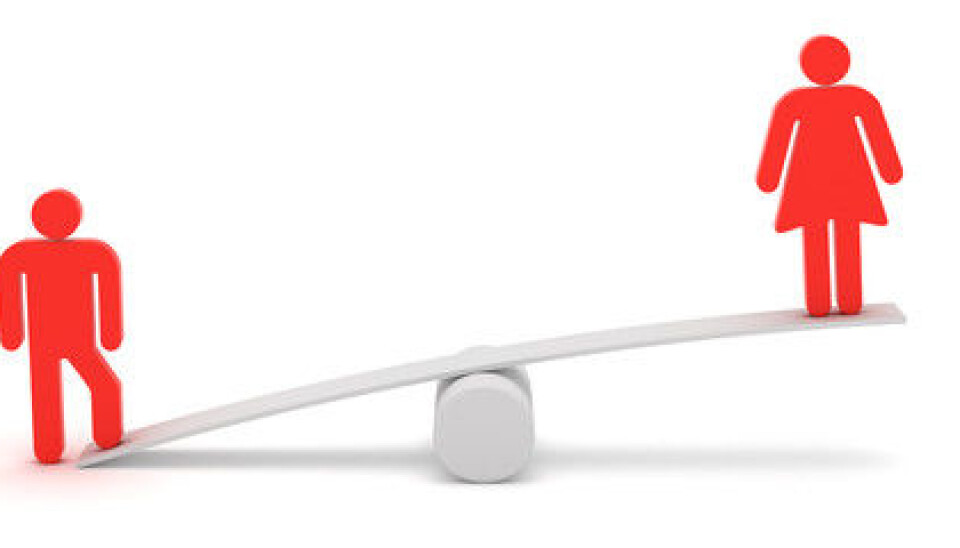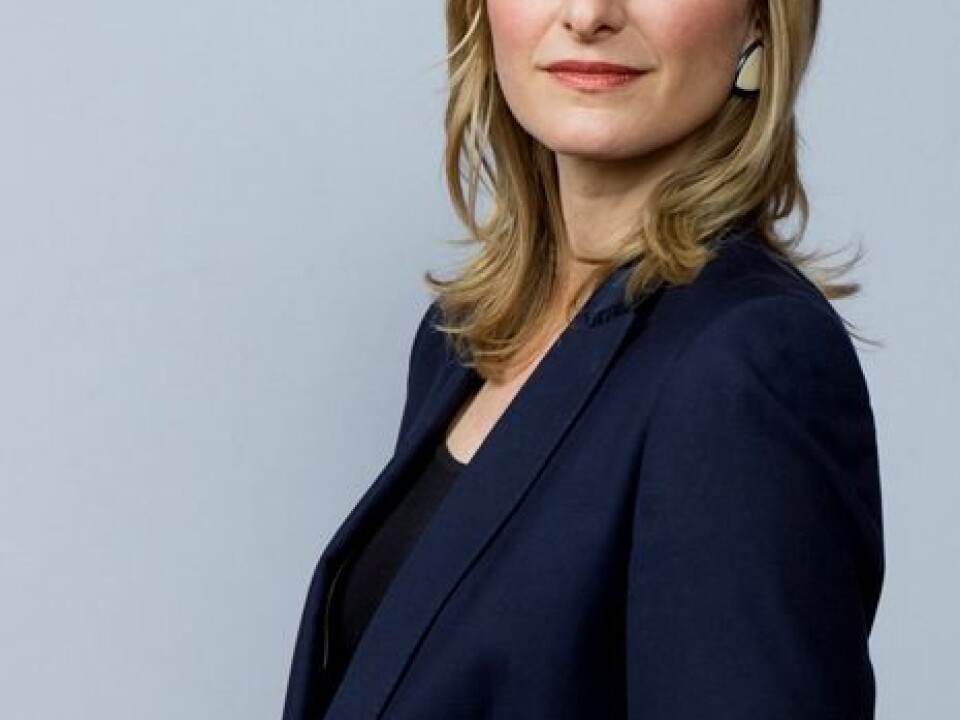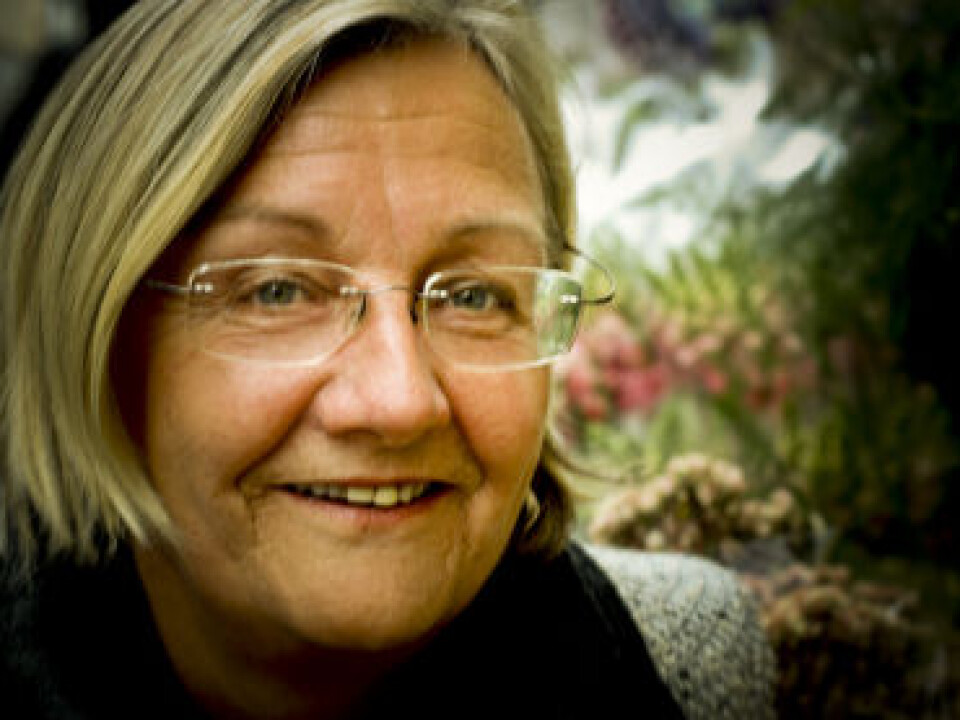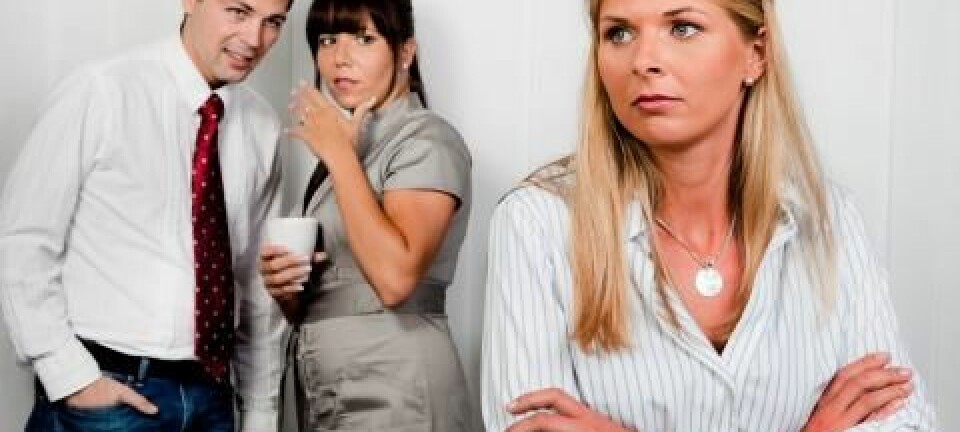An article from KILDEN Information and News About Gender Research in Norway

Norwegian equality policy has failed
After several decades of equality policy, men still earn the most, dominate the media and wield the most power in politics.
Denne artikkelen er over ti år gammel og kan inneholde utdatert informasjon.
"Politicians often complain that the ‘toolbox is empty’. In the field of equality it seems that the toolbox itself is missing,” says Professor Hege Skjeie. She has headed up the most comprehensive review of this policy area ever undertaken.
Recently she submitted the committee’s second report “Policy for Equality” to the Norwegian Minister of Children, Equality and Social Inclusion Inga Marte Thorkildsen.
“Gender equality has not gone too far. It has come up short,” states Thorkildsen. She is especially concerned about getting this message across to the younger generation.
Impressed the minister
“Some young people are lukewarm towards the whole issue. They don’t think gender equality is very important. Paradoxically, this generation enjoys a great deal of freedom because of the previous generation’s work to advance gender equality,” says the Minister.

She notes that there are very few people trying to overturn the abortion law, and that there are crisis centres throughout Norway and soon there will be centres for incest victims in all the counties. The Marriage Act applies to both heterosexual and homosexual couples, and there is an Equality and Anti-discrimination commission.
"The list is long. And why? Thanks to the tireless efforts of politicians, journalists and alliances between women and men. But we still have a long way to go before we achieve full equality at all levels,” she states.
Daily efforts
“We have been asked to help with formulating new policy, and we have done that. Our recommendations are based on a review of the status of equality in key areas that impact living conditions. We have identified four focus areas: representative government, freedom of choice, distribution of resources and vulnerability,” says Professor Skjeie.
She thinks it is high time that equality moves from paper to practice.

“Equality policy needs to break out of the action plan format. Too often the action plan is the only way politicians demonstrate their power to act. Equality policy must be long term and knowledge based, and it must build on solid institutions,” she emphasises. She describes the road to equality as one built on ordinary daily efforts.
Fairness - the right to equality
The report is based on the broad lines of thinking in equality policy developed in Norway since the early 1970s. Key areas such as political participation, education, employment, caregiving and protection against harassment and violence are thoroughly discussed.
Why do we need equality at all? The committee says fairness is the reason.
“Each and every one of us has a right to equality, which stems from the respect each and every one of us has a right to as an individual. A society that does not guarantee its citizens this respect, these rights and this concept of citizenship, is an unfair society.”
No world champion of gender equality
Norwegians are known as the world champions of gender equality. Is this because they excel at it or because the competition is so weak? There is now much evidence to suggest the latter, and Skjeie gives a simple explanation for why Norway always comes out on top in international gender equality rankings.
“It is mainly due to relatively good gender balance in higher education, in employment and in administrative and political leadership positions. The percentage of women pursuing a higher education and the percentage of working mothers with small children helps Norway to rise to the top statistically,” says Skjeie.
“But the statistics don’t say anything about the working environment in companies, about recruitment practices in the care services sector, about the risk of violence or about the extent of gender stereotypes in schools and pre-schools.”
Women as part-time employees
The committee describes working life in Norway as unequal with regard to gender as well as class. Women hold part-time jobs more often and over longer periods than men, and women with less education work part time more often than women with more education. The committee also points out a connection between part-time work and the gender-segregated labour market. For example, female-dominated professions have strong guiding principles that encourage part-time work.
The report clearly highlights that the gender segregation in the labour market is tied to processes that create inequalities in wages, status and opportunities for development.
According to the committee, strong guiding principles maintain persistent ideas about what is “womanly” and “manly”, resulting in a continuation of the gender divide.
Violence and discrimination
The report shows that little is known about the extent of discrimination in Norway. There is a lack of regular national surveys, such as on gender discrimination, and the measures that have been implemented are not adequate.
Today it is difficult for people in vulnerable situations to take full advantage of the Norwegian welfare and court systems. The task of informing people about their rights falls mainly on non-governmental organisations. The committee believes that the lack of free legal assistance is one of the reasons that so few discrimination cases come before the courts.
To improve the current situation, the committee is calling for free legal assistance in discrimination cases, funding for legal information, legally established reception centres for victims of sexual violence and a nationwide, 10-year programme to combat sexual harassment in youth environments.
Translated by: Connie Stultz
































